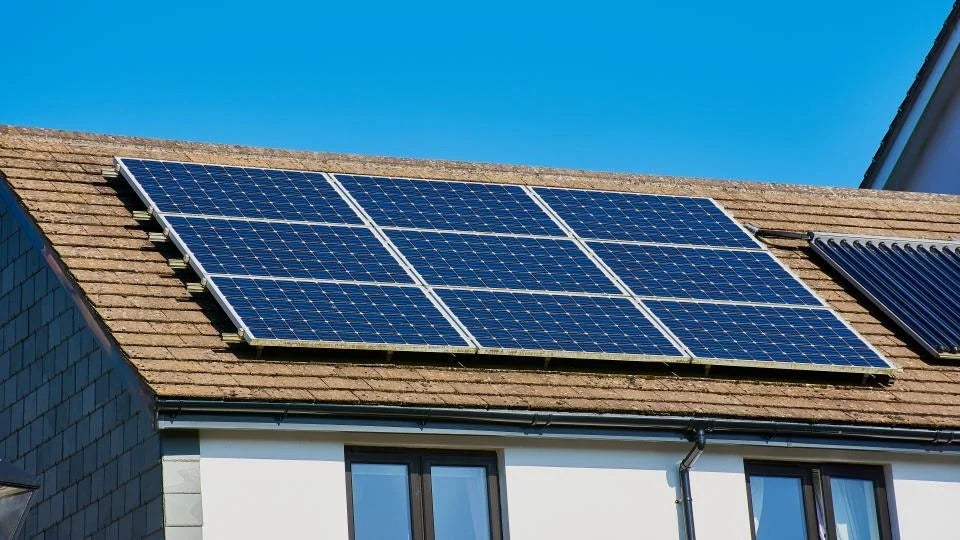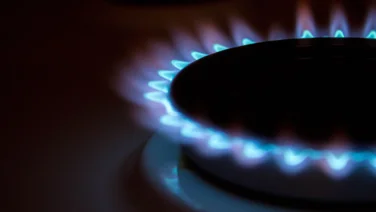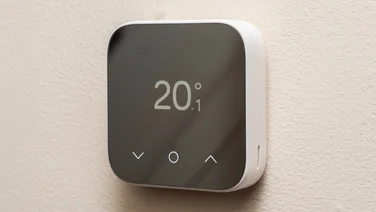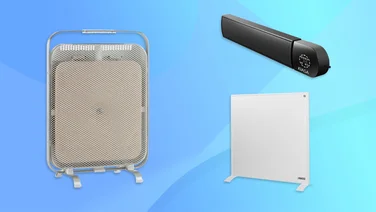To help us provide you with free impartial advice, we may earn a commission if you buy through links on our site. Learn more
- Get a free solar panel quote now
- How long will new solar panels last?
- Do solar panels come with a long warranty?
- How soon will my solar panels pay for themselves?
- What types of solar panels last longest?
- How long do solar panel inverters last?
- How long do solar panel batteries last?
- How can I make my solar panels last longer?

Solar panels are a better buy than ever. Their price is falling while energy bills soar, and an installation now only takes a few years to pay for itself. But how long do solar panels last, and for how long will they slash your electricity bill to little or nothing?
A modern solar photovoltaic (PV) system will last for decades. Certain factors such as extreme weather may affect their longevity, but tests have shown that solar panels in moderate climates retain around 96% of their performance levels after working for 20 years. If only we could say that for ourselves!
Solar panels are lasting longer as the technology evolves, too. The industry standard is now 25-30 years before you start to notice a reduction in electricity production, and with some newer panels it’s 40-50 years. Given that a solar installation is likely to cut your electricity bill by at least 90% amid current national grid price rises, that lifespan makes solar panels a superb long-term investment.
In this article we’ll examine how many years of electricity-generating use you’re likely to get from different types of solar panels. We’ll also look at simple steps you can take to ensure that your solar panels last as long as possible.
Get a free solar panel quote now
Take our quick survey below and we’ll provide you with a free quote for solar panel installation that’s tailored to your requirements. Why not find out how much you could save?
How long will new solar panels last?
If you have new solar panels installed today, they could easily last 40 years, regardless of their size and wattage. Given that the average UK homeowner stays in their house for only an average of 8.7 years (with a mortgage) or 22.4 years (owned outright), solar panels have a very good innings. And remember that solar panels are still a relatively new technology, so their quality and durability is evolving fast while their prices drop.
READ NEXT: The best solar panels to buy
Do solar panels come with a long warranty?
A solar PV panel installation typically comes with a warranty lasting 25 years. As well as insuring against defaults, most warranties guarantee the panels’ ability to produce electricity at a consistently high rate. The small print may differ depending on the manufacturer and model, but most warranties guarantee 90% production at 10 years and 80% at 25 years. In practice, new solar panel installations are likely to maintain performance for longer than that.
Solar panels don’t contain moving parts, but they do have additional components, each with their own warranties. The inverter, which converts the sun’s DC electricity to AC that you can use at home, is usually guaranteed for up to 10 years. The optional battery, which lets you store electricity to use later, will be covered for up to 15 years.
How soon will my solar panels pay for themselves?
This figure is falling thanks to the rapid rises in energy prices. A year ago in early 2022, the general consensus was that a new solar panel installation costing around £5,000-£7,000 would take 10 or 11 years to pay for itself in the equivalent reduction in electricity bills. You’ll also have lower gas bills, if your solar panels encourage you to switch away from using gas for heating and cooking.
But in early 2023, the payback time has dropped to around seven years. Energy industry experts are now predicting that if energy prices continue to rise, a solar panel installation in a sunny spot will pay for itself in five years.
Looking for the best price on solar panels for your home?
Find the right supplier for you
What types of solar panels last longest?
The size and wattage of your solar panels won’t affect their lifespan, but their composition may do. Solar panels contain silicon to capture energy from the sun and turn it into electricity, and there are two types of silicon that manufacturers use: monocrystalline and polycrystalline. New monocrystalline panels typically last 40 years, while new polycrystalline models have a slightly shorter lifespan of 35 years.

Of course, these are predicted figures. The huge majority of solar panels currently in use were built and installed in the last 15 years, especially in the UK, where the introduction of Feed-in-Tariff (FIT) in 2010 saw a surge in installations. But the sturdiness and efficiency of solar panels has improved fast, making manufacturers confident enough to guarantee the performance of their panels for decades.
READ NEXT: How many solar panels do I need?
How long do solar panel inverters last?
Every solar panel system includes an inverter, which converts the sun’s DC electricity to AC electricity that you can use in the home. This is probably the only part of the system that’ll need replacing within the lifespan of your solar panels, usually after around 10-12 years, and will set you back around £800 including labour.
How long do solar panel batteries last?
You can expect your battery to last for up to 20 years. A battery is an optional extra, which lets you store any unused electricity (for example the excess energy generated on a bright spring day) to use later at home. Without a battery, you lose what you don’t use.
Some solar panel installations come with a battery included and some don’t, but you can buy one to add to your system. Like a panel system itself, a battery is an upfront investment (from £2,574 from E.ON) that pays off over time, reducing your bills by significantly more than panels alone.
Looking for the best price on solar panels for your home?
Find the right supplier for you
How can I make my solar panels last longer?
Solar panels are literally built to face the elements. They’re weatherproof and durable, and you won’t need to put in much time maintaining them to ensure they meet their maximum lifespan.
However, there are factors that affect how long they deliver peak performance. One is extreme weather. Tests have shown that panels in extremely cold climates with lots of snow and ice degrade the fastest. Second-fastest degraders were panels located in desert conditions with high levels of UV exposure. But their electricity production still only decreased about 1% per year, compared with a mere 0.2% per year in moderate climates such as the UK.
Solar panels work best when they’re clean (grubby panels capture less light, after all), and rain showers help with that. If you live near trees or you’ve had a long period without rain, it may be worth calling a professional solar panels cleaner to give them the once-over. Solar panels themselves are safe to clean by yourself (just make sure you don’t go scrubbing around in the wiring), but they tend to be located on the roof, so we think it’s wise to call in the pros.
It’s also worth keeping an eye on your system’s output regularly via the inverter. Inverters are usually located in the loft, so to make things easier you can buy a remote monitor (such as this one for under £100) that lets you check output and other details over the internet. The inverter itself is a crucial piece of kit, and you’ll get the best out of your solar panels if you replace it when needed, after a maximum of around 15 years. That’s likely to set you back around £800 including labour. Forever Green is currently offering a Solax inverter for £550, with free quotes for installation.






